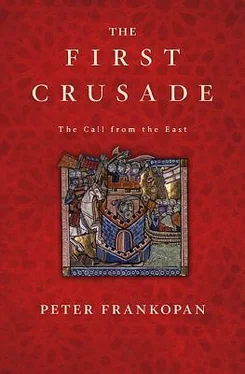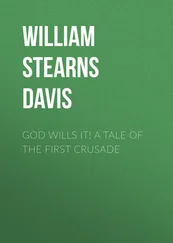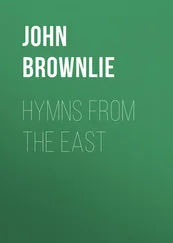I owe thanks to many of my colleagues in Oxford, but particularly to Mark Whittow, Catherine Holmes, Cyril and Marlia Mango, Elizabeth and Michael Jeffreys, Marc Lauxtermann and James Howard-Johnston who have been generous in sharing their views of the eleventh and twelfth centuries. I am particularly grateful to Jonathan Shepard, who gave that first lecture in Cambridge, for steering me towards Byzantium and for proving an important influence since. Many others, from my undergraduate and graduate students to colleagues with whom I have discussed Constantinople, Alexios and the Crusades late into the night at conferences, are also owed my gratitude. If I have failed to take their good advice, and that of others, I can only apologise.
Catherine Clarke has been wonderful, encouraging me to tell the story of the First Crusade afresh. This book would not have been written without her guidance and the help of her fantastic team at Felicity Bryan. Will Sulkin at The Bodley Head and Joyce Seltzer at Harvard University Press have been generous and supportive throughout. I owe thanks to Jörg Hensgen for asking difficult questions and making this book better than it would otherwise have been. Chloe Campbell has been a guardian angel, her patience and advice consistent and invaluable. Many thanks to Anthony Hippisley, and also to Martin Lubikowski for his maps. I could not be more grateful to my parents, who have inspired me since I was a boy.
My greatest debt is to my wife Jessica, who heard about nomads, Byzantium and the eastern Mediterranean on the same day that I did, as I told her excitedly about the new world I had encountered that morning. She listened patiently as I told her I had found my dream subject, and encouraged me to pursue it over the first of many cappuccinos in Clowns; this book is dedicated to her.
Peter Frankopan July 2011
I have not followed a consistent rule when transliterating from Greek, as it would seem churlish not to use well-established English forms of well-known names. Naturally, this leads to some personal judgements, which I hope are not off-putting. I have used Constantinople, Nicaea and Cappadocia, for example, but Dyrrakhion, Thessaloniki and Nikomedia. Likewise with individuals, I have used George, Isaac and Constantine, but Alexios, Nikephoros, Palaiologos and Komnenos. Western names are given in their modern form, hence William rather than Guillermus and Robert rather than Robertus. Turkish names follow the Encyclopaedia of Islam .
Where possible, I have used English translations of the major sources, rather than direct readers to the original texts. This is not always ideal, since in some cases, there are outstanding modern critical editions which will in due course lead to better and finer translations than some of those cited. Nevertheless, it seems preferable to aim for some consistency of approach than to cite some modern translations but provide my own versions of others. As with the names, I very much hope that this does not detract from the wider enjoyment of the subject matter.
On 27 November 1095, in the town of Clermont in central France, Pope Urban II stood up to deliver one of the most electrifying speeches in history. He had spent the previous week presiding over a church council attended by twelve archbishops, eighty bishops and other senior clergy, before announcing that he wanted to give an address of special importance to the faithful. Rather than speak from the pulpit of the church in Clermont, Urban decided to deliver his words in a nearby field so all who had gathered in anticipation could hear him.
The setting was spectacular. Nestled at the heart of a chain of dormant volcanoes, with the mightiest of the lava domes, the Puy-deDôme, clearly visible just five miles away, the Pope had chosen a spectacular setting. The crowd strained to hear him as he began to speak on a cold winter’s day: ‘Dearest brethren,’ he said, ‘I, Urban, supreme pontiff and by the permission of God prelate of the whole world, have come in this time of urgent necessity to you, the servants of God in these regions, as a messenger for divine admonition.’ 1
The Pope was about to make a dramatic call to arms, on the point of urging men with military experience to march thousands of miles to the Holy City of Jerusalem. The speech was intended to inform and to provoke, to exhort and to anger; to generate a reaction of unprecedented scale. And it did precisely that. Less than four years later, western knights were camped by the walls of the city where Jesus Christ was crucified, about to take Jerusalem in God’s name. Tens of thousands had left their homes and crossed Europe, spurred on by Urban’s words at Clermont, determined to liberate the Holy City.
‘We want you to know’, the Pope explained in his speech at Clermont, ‘what sad cause has brought us to your land and what emergency of yours and all the faithful it is that has brought us here’. Disturbing news had reached him, he said, both from Jerusalem and from the city of Constantinople: the Muslims, ‘a foreign people and a people rejected by God, had invaded lands belonging to Christians, destroying them and plundering the local population’. Many had been brutally murdered; others had been taken prisoner and carried off into captivity. 2
The Pope graphically described the atrocities being committed in the east by the ‘Persians’ – by which he meant the Turks. ‘They throw down altars, after soiling them with their own filth, circumcise Christians, and pour the resulting blood either on the altars or into the baptismal vessels. When they feel like inflicting a truly painful death on some they pierce their navels, pull out the end of their intestines, tie them to a pole and whip them around it until, all their bowels pulled out, they fall lifeless to the ground. They shoot arrows at others tied to stakes; others again they attack having stretched out their necks, unsheathing their swords to see if they can manage to hack off their heads with one blow. And what can I say about the appalling treatment of women, which is better to pass over in silence than to spell out in detail?’ 3
Urban did not mean to inform the crowd which had gathered, but to galvanise it: ‘Not I but God exhorts you as heralds of Christ to repeatedly urge men of all ranks whatsoever, knights as well as foot soldiers, rich and poor, to hasten to exterminate this vile race from our lands and to aid the Christian inhabitants in time.’ 4
The knighthood of Europe should rise up and advance boldly as warriors of Christ and rush as quickly as they could to the defence of the Eastern Church. A battle line of Christian knights should form and march to Jerusalem, driving out the Turks on the way. ‘May you deem it a beautiful thing to die for Christ in the city where he died for us.’ 5God had blessed the knights of Europe with an outstanding ability in battle, great courage and strength. The time had come, he said, for them to make use of their powers and avenge the sufferings of the Christians in the east and to deliver the Holy Sepulchre to the hands of the faithful. 6
The various accounts of what Urban said at Clermont leave little doubt that the Pope’s speech was an oratorical masterpiece, his exhort ations carefully weighted, his gruesome examples of Turkish oppression perfectly chosen. 7He went on to describe the rewards awaiting those who took up arms: whoever made the journey east would be eternally blessed. All were encouraged to take up this offer. Crooks and thieves were urged to become ‘soldiers of Christ’, while those who had previously fought against their brothers and kinsmen were told to now join forces and fight lawfully against the barbarians. Whoever went on the journey, inspired by their devotion rather than for the love of money or glory, would receive remission of all their sins. It was, in the words of one observer, ‘a new way to attain salvation’. 8
Читать дальше











